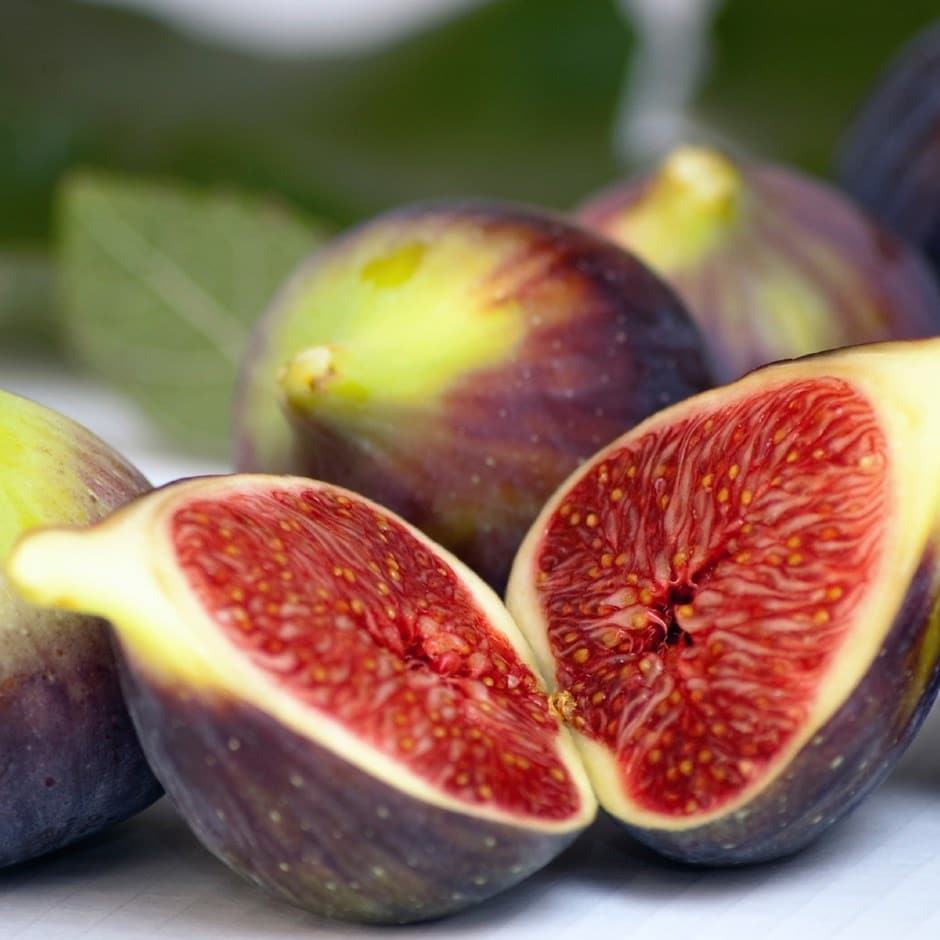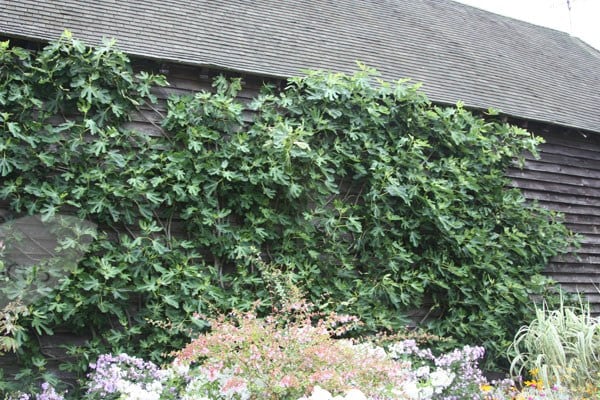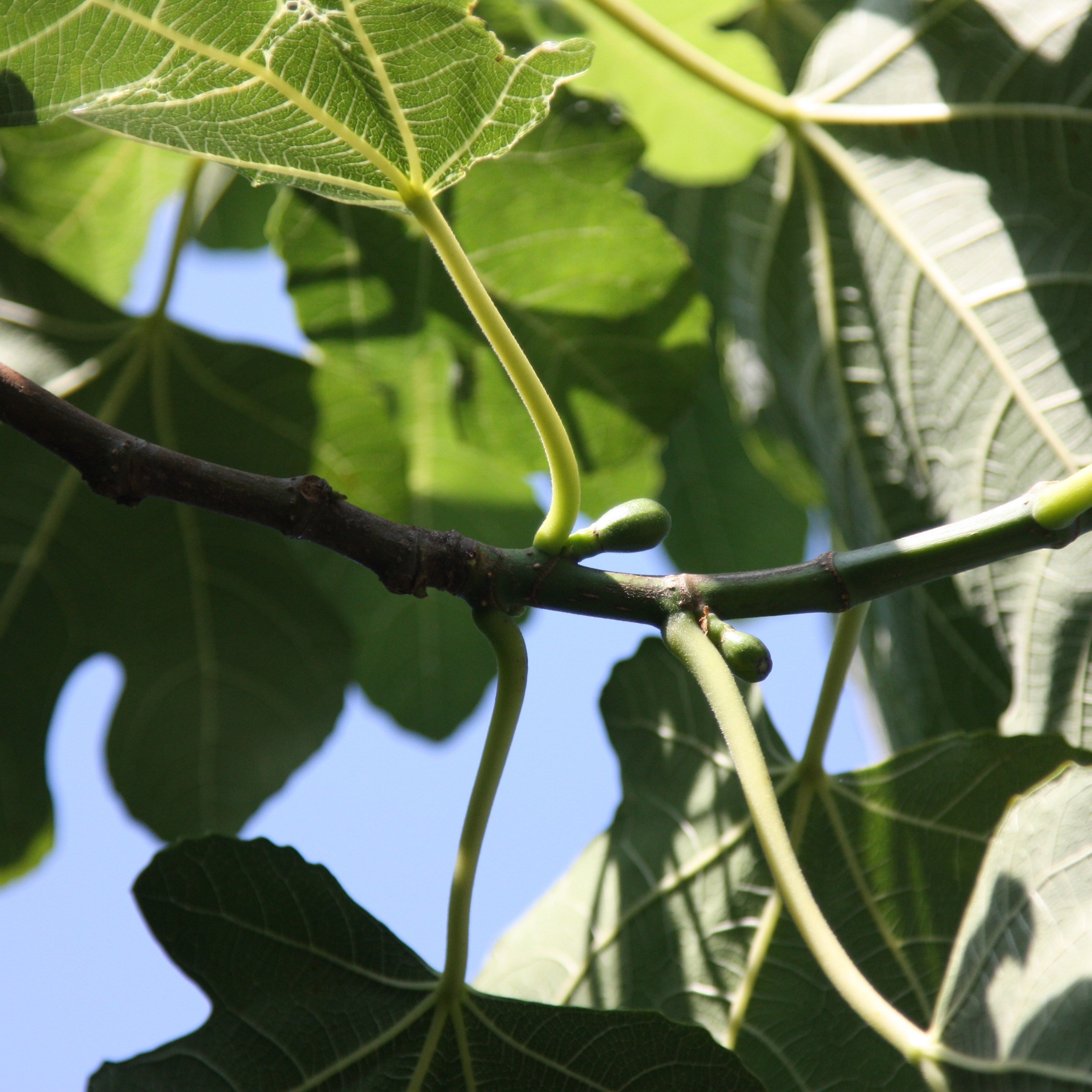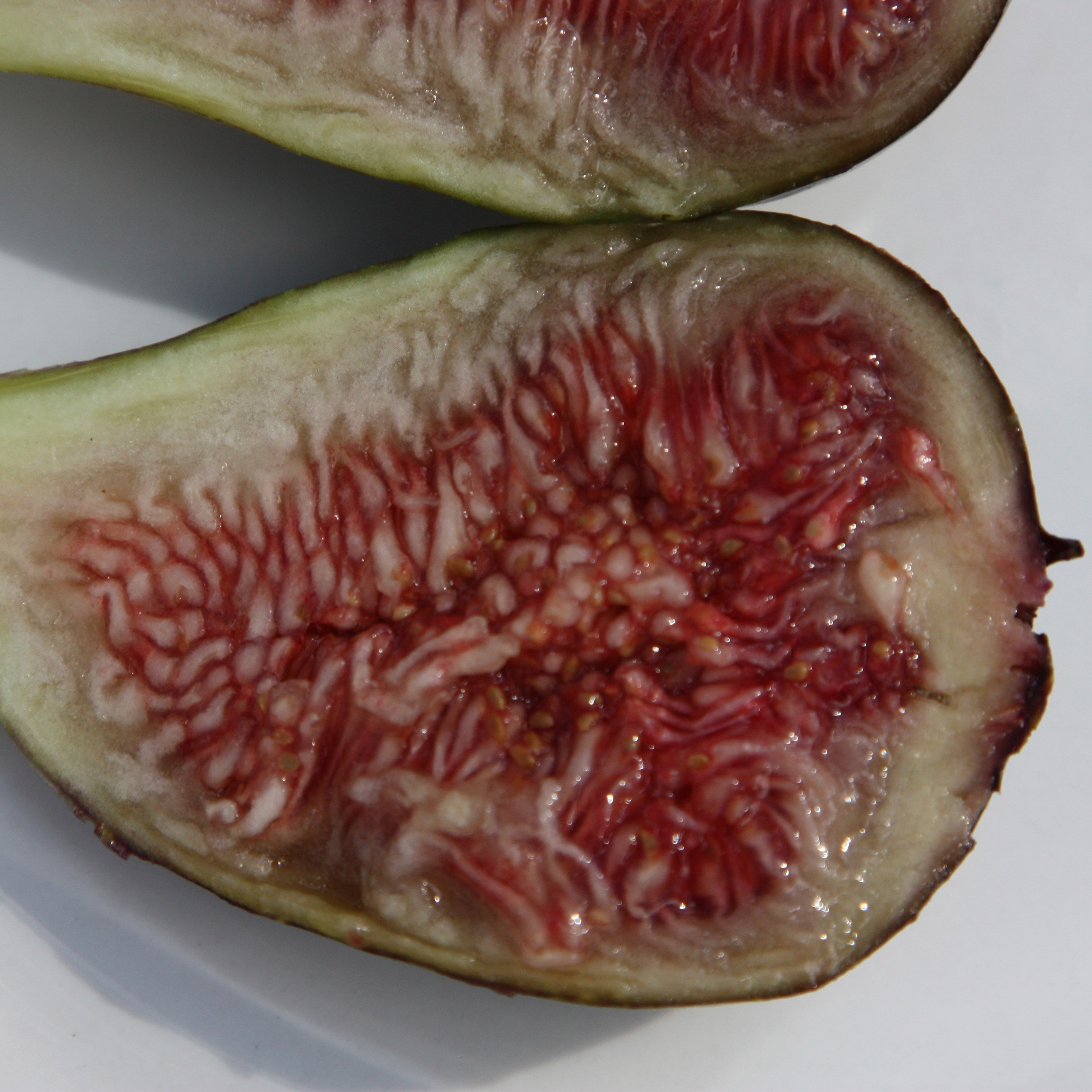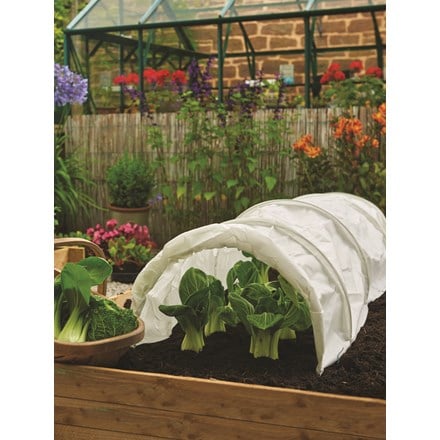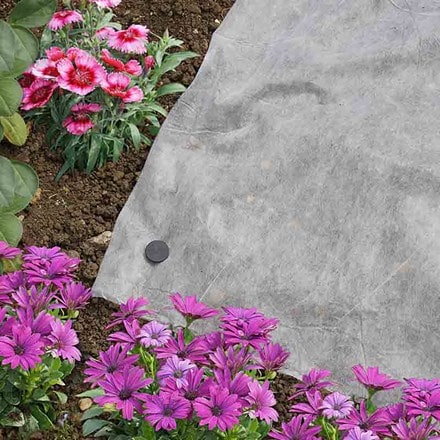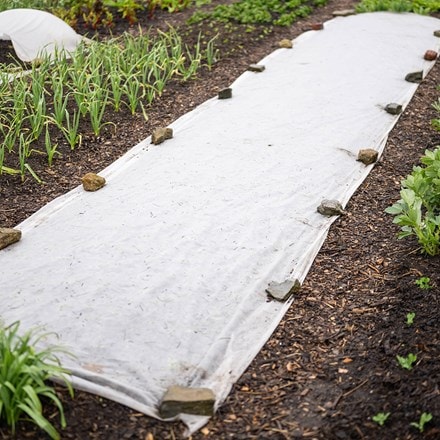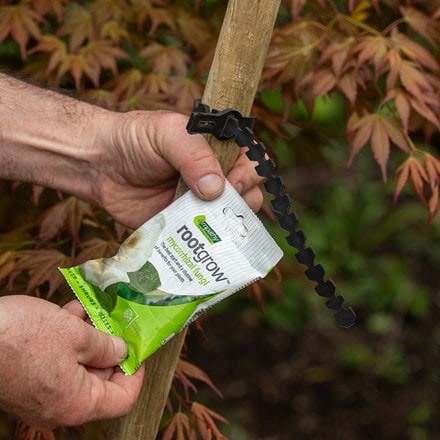fig 'Brown Turkey'
fig Brown Turkey
- 2 litre pot | 30 - 40cm tall
- £18.36 £22.95
- In stock (shipped within 2-3 working days)
- 10 litre pot | 40 - 60cm tall
- £87.99
- In stock (shipped within 2-3 working days)
- 9 litre pot | ½ standard
- £129.99
- In stock (shipped within 2-3 working days)
- 5 litre pot | 40 - 50cm tall
- £59.99
- available to order from autumn
- 12 litre pot | ¼ standard | 1.2m tall
- £134.99
- available to order from autumn
Delivery options
- Standard £5.99
- Position: full sun
- Soil: will tolerate most soils, except very badly drained
- Rate of growth: average
- Hardiness: fully hardy
This deciduous, spreading shrub is highly ornamental, with large, glossy, palmate leaves. It is best grown against a south or south-west facing wall, where, in long, hot summers it will produce an abundant crop of brown, pear-shaped fruit with red flesh. These figs are rich and sweet and available for picking from August to September. An interesting and easy plant to grow, and one of the oldest fruits in cultivation. - Garden care: If the roots of a fig are allowed free rein, the plant's energy will usually be focused on producing top growth rather than fruit. Therefore, if you are growing your fig tree for its fruit, or if you want to keep it more compact, then the roots should be restricted when planting. There are two ways of doing this. The first is to plant it up into a large pot, and then sink this into the ground. Alternatively, you can dig a 60 x 60 x 60cm pit, line the edges with paving slabs and place a layer of large crocks or rubble at the base. Then, re-fill the pit with the displaced soil (after mixing in some good quality compost) and plant the fig into that.
Prune in spring when all chance of frost has past. Remove any frost-damaged or weak branches, and thin out shoots to let light in. Some pruning may be required in summer to encourage bushier growth. If so, trim all new shoots back to five or six leaves.
Figs are capable of producing three crops of fruit every year, but in our climate it is the tiny little ones that you find tucked into the leaf axils in autumn, that if protected from frosts, will go on to ripen in their second summer. Therefore if you are growing the fig for its fruit rather than its foliage, you should remove any developing fruits that are larger than a pea in autumn, and either cover the crown of the tree with a blanket of frost fleece or try to gently pack it with straw. This will keep them snug and warm throughout winter and push the plants energy into the development of the young fruits, which should grow into fully ripened figs next year.
- Humans/Pets: Harmful to skin with sunlight
Goes well with
Biofleece plastic free plant fleece - 30gsm
2.1m × 10m
£20.99
In stock (shipped within 2-3 working days)
Essential tree planting kit with softwood stake
kit with with softwood stake
£12.97
In stock (shipped within 2-3 working days)
